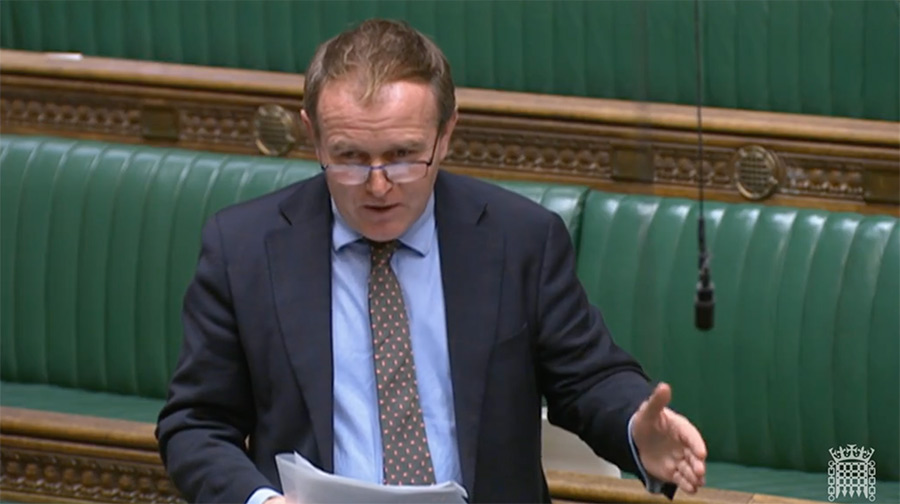Editor’s view: Fear, not greed, keeps ministers in post
 George Eustice
MP © Parliamentlive.tv
George Eustice
MP © Parliamentlive.tv This week, George Eustice stood in Parliament and made a confession. The trade deals with Australia and New Zealand were not very good and (to cut a long story short) it was all Liz Truss’ fault.
Naturally, many farmers, reasonably, asked in terms not as polite as this: Why didn’t you say something sooner?
The ink on the deal is now dry and any chance to steer the agreement in favour of more protection is now long gone.
See also: George Eustice faces farmer backlash over trade deal comments
Could a splashy resignation just ahead of the G7 meeting at which the Australia deal was announced have done the trick? We’ll never know.
Without excusing Mr Eustice’s actions, or lack of them, let me explain what I think may be an underpriced reason why someone clings to office – and it’s not just a simple enjoyment of the ministerial Jaguar.
In politics, the currency of choice is power and decisions stem from this simple fact. Although we must all bend to powers such as the rule of law, the use and abuse of personal power is most nakedly apparent in this grubby trade.
In farming communities help is frequently offered on the basis that it is honourable to be a good neighbour wherever possible.
Gratitude is a powerful motivator. It’s unkind to pass up an opportunity to repay a favour if someone has done you a good turn in the past.
In politics, gratitude fades rapidly and can be overridden by two other emotions, hope and fear.
A politician will vote against the wishes of some of their voters if they have hope that this action will earn them future favours from power brokers, or fear that future favours will be withdrawn.
Anyone who has sat on the green benches for a while will have had to make many little compromises such as this, telling themselves that politics is a team game and that when voting with the herd they are at least keeping out the other team, who would be even worse.
By the time you get as high as the Cabinet, you’ll have shaved off a few more principles on the way because you believe if only you can get to lead a department, the ends will justify the means and you will finally be able to do some good.
But instead, having climbed almost to the apex of the greasy pole, you find yourself embroiled in one of the worst battles of your career.
And, worst of all, you still lack the power to swing the decision in your favour. When two departments go to war it will be whoever has the ear of the prime minister who emerges victorious.
Do you walk? This is a roll of the dice from which there will be no return. And there is no guarantee that it will turn the tide in your favour.
Worse still, all the previous little concessions to take one more step upwards, to finally get your own power base, to finally leave your mark on the world, will have been for nothing. And your successor may even unpick the little good you have done.
Pour your scorn on George Eustice all you like for having the ego to believe he was still the best person for the job even after losing a key battle.
But spare a thought too for every other politician still battling daily with the eternal question: Do the ends justify the means?

